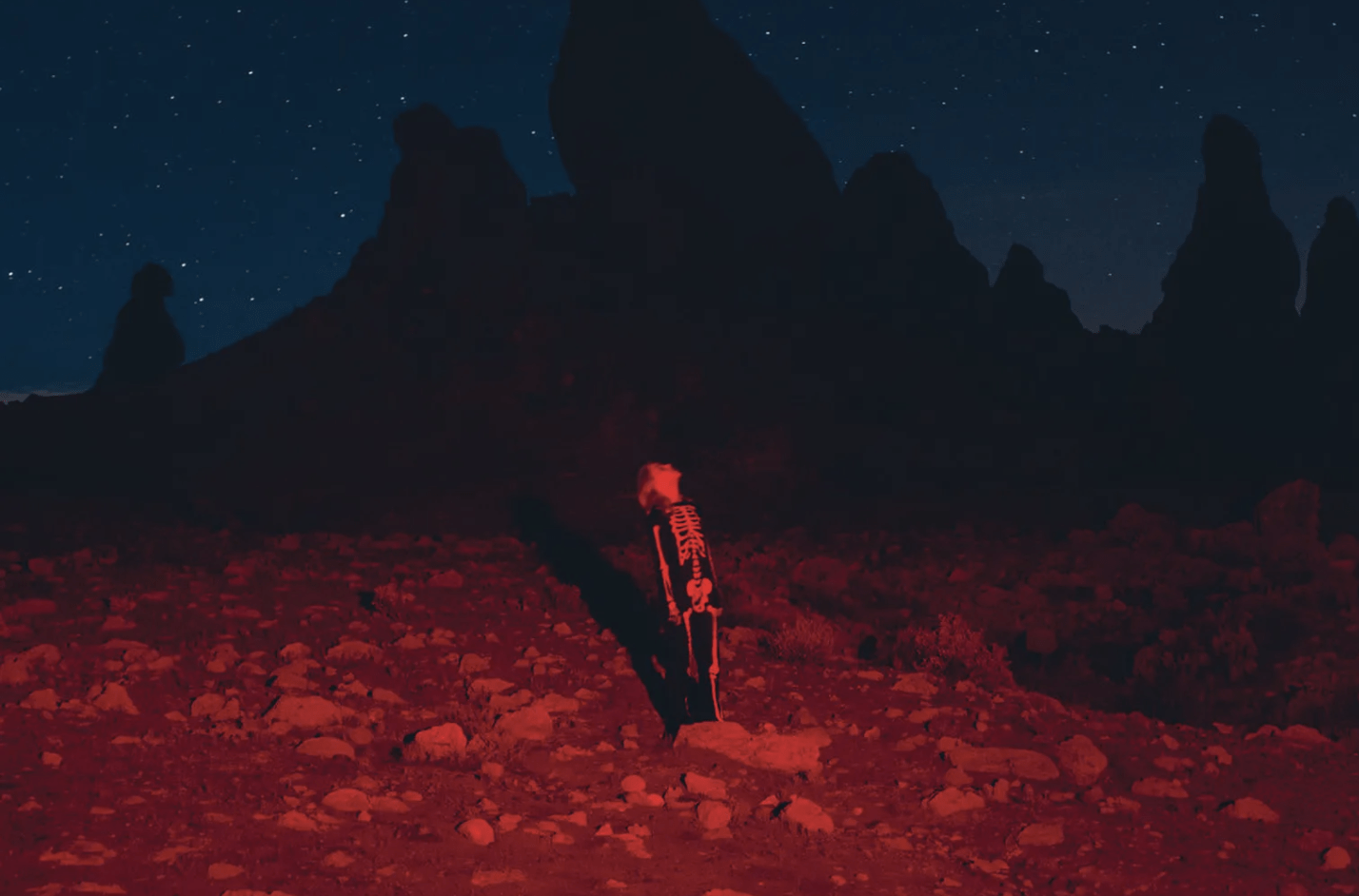
Phoebe Bridgers ‘Punisher’ is the Calm in the Eye of the Storm
The 25 year-old L.A. musician stuns with the release of her sophomore album.
Phoebe Bridgers writes “sad-girl” songs for the masses — crafting particular narratives into tender and sentimental tunes. In her sophomore album, Punisher, Bridgers cultivates a more mature sound and delves into her signature confessional style of songwriting. From the mysterious intro “DVD Menu” to the cacophony of “The End is Near,” the album brings cathartic awareness to an anxiety-ridden world. Bridgers’ strong and genuine writing style relieves the nervousness of being a twenty-something in a period of uncertainty.
Over the past three years, Bridgers has built an everlasting presence. She was catapulted into prominence in the indie alternative music community when “Motion Sickness,” the lead single from her debut album displayed her genius songwriting ability, as she weaved nostalgic tones with the intimate details of a failed and toxic relationship. The whirlwind breakup song was written about her former partner and musician Ryan Adams, who had allegedly sexually abused many female artists, including Bridgers (she came forward along with other victims in a 2019 New York Times article). Since then, Bridgers took part in not only one, but two successful supergroups: boygenius and Better Oblivion Community Center. “I’ve been so lucky to be treated like a peer by people that I really look up to — Julien Baker, Lucy Dacus, Conor Oberst, Matt Berninger — that I think that it’s fun to kind of nerd out with a bunch of people over an idea you came up with together.” she confessed in an NPR interview. “I think that’s the best part, instead of just second-guessing yourself in your house.” It seems as though Bridgers grew extensively through collaboration and Punisher is the prime example of that growth. The emotionally-charged scenarios and the variety of characters who surround her help her musically succeed in persuasive execution while also maintaining a delicate soundscape.
Bridgers may only be 25, but on Punisher she’s constantly reminiscing. Through seamlessly pairing atmospheric instrumentals with vulnerable lyricism that depicts the realistic scenarios of a turbulent love life, her songs meditate on everyday happenings as she constantly wanders. The overwhelming grief in Punisher’s lead single, “Garden Song,” highlights the nightmarish domino effect of seeing life through different frames and acts as the shattering strongpoint of the album. She laments about a haunted idealized life with an admired character but is ultimately becoming content with her life’s new direction alone. That impact is greatly reflected in her hushed silky voice and the hollow guitar fingerpicking, which in the chorus, simultaneously contrast the deep and booming voice of her tour manager, Jeroen Vrijhoef. Dependability is her ultimate weakness and the growing absence of a beloved figure delivers her into such profound realizations of self-love.
Whereas in “Kyoto,” Bridgers recollects traveling across Japan with the constant, interrupting memories of her father neglecting her. The poignant telling of her journey is complemented by her musical versatility; instead of relying solely on guitar and slow drums like in her other songs such as “Savior Complex” and “Halloween,” she strides in confidence with the bouncy and fast-tempoed drums in the verses and the ethereal strings and horns in the choruses. Together, it’s composed into a cheery, groovy, and memorable symphonic piece. Yet the instrumentals contrast the lyrics’ disappointment and cynicism of her father’s actions towards her little brother: “He said you called on his birthday / You were off by like ten days / But you get a few points for trying.” The subject seems like it could apply to any apathetic figure, who, in last resort, is trying to make up for their mistakes, but eventually fails in the long run. These first two songs alone showcase her adept skill at lyricism in conveying her personal journeys — being devastatingly broad while also sprinkling in her remarkably unique experiences.
On the penultimate track “Graceland, Too,” Bridgers recalls trekking through Tennessee and heading towards a new and unknown direction. Rather than father figures or lovers, Bridgers confides in the intimate little joys of being with her friends in an unplanned road trip through Memphis, with drug experiences, Elvis memorabilia, and direct references to Tom Petty. The boygenius trio (Bridgers, Lucy Dacus, and Julien Baker) convenes and soars together in the outro, “I would do anything, whatever you want me to do.” It’s a great nod to the supergroup’s motif of self-soothing from their critically-acclaimed EP, where each member’s distinct and individual songwriting genre eventually meshes together for a dazzling performance of sentimental comradery and reassurance. In this track, Bridgers deeply touches upon her folk roots with banjo-flare and harmonizing fiddles, yet also presents the next step of her resounding evolution as an artist. By moving away from singularity and reliance, she turns to more collective and therapeutic healing.
After wandering with Bridgers, Punisher concludes with a grandiose finale in “I Know the End.” She takes us along on a tour experience on the road and doesn’t slow down. Halfway through the song, her confidence begins to bloom with a chorus of guest vocals harmonizing with her soft voice. She croons, “No, I’m not afraid to disappear, the billboard said ‘The End Is Near’ / I turned around, there was nothing there / Yeah, I guess the end is here.” The cacophony of voices repeatedly sings, “The end is near,” with triumphant instrumentation which erupts into blood curdling screaming and noise, only to descend into Bridgers scream whispering and coughing alone to the microphone. The screaming gives us a glimpse into the universal frustration of isolation while also portraying a world where there is a harmonious acceptance that falling into the void of chaos is inevitable. Punisher with its raw lyricism and impressive recollections, takes us on lively, expansive journeys that demand to be led to its destination. Bridgers proves that the art of confession isn’t a solitary practice, nor is it one that deals in meek songs, instead it’s a force to be reckoned with the great help of your closest collaborators.


